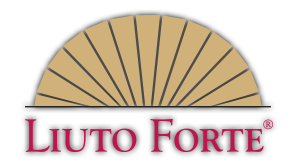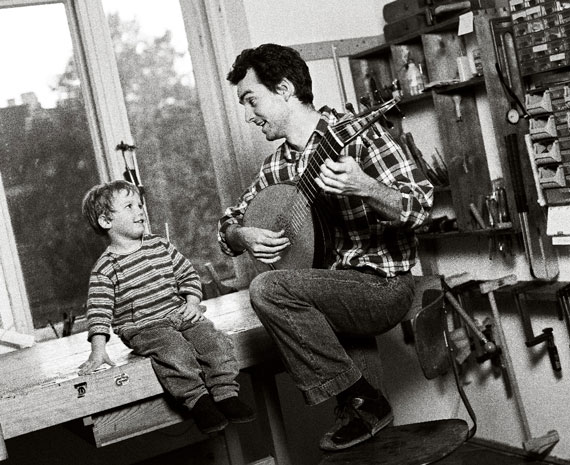The Liuto-forte Team
The Liuto forte team consists of independent master instrument builders and the sales and marketing firm Liuto forte e.K., in addition to external advisors who play an active supporting role in research and further development.
On behalf of André Burguete’s trading company, the Liuto forte manufactories in Germany and Belgium, makes all models of the Liuto forte. Research and development are coordinated in close cooperation between André Burguete and the instrument makers.
André Burguete
Lutenist and musicologist
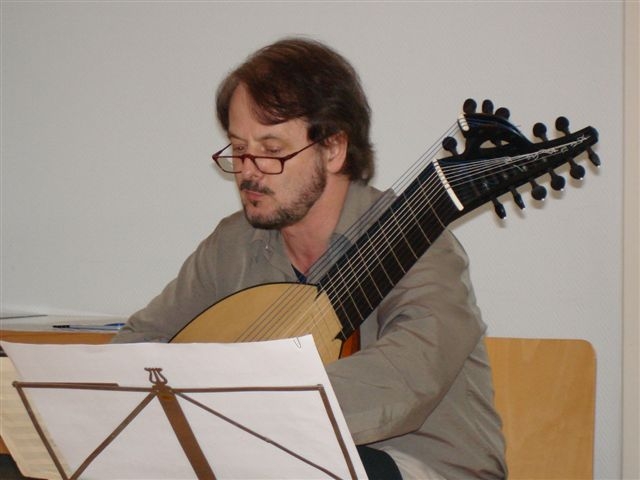
Born in St Petersburg, of Spanish-German extraction.
He grew up in Dresden, studied lute and guitar with Roland Zimmer in Weimar, counterpoint with Walter Heinz Bernstein in Leipzig and was a guest student at the musicological lectures of Hans Grüß.
Between 1989 and 1997 he headed the Institute for Lute Research – Akademie Weiss in the Parc de Schoppenwihr near Colmar, France.
André Burguete is chiefly active as a soloist and belongs among the well-known interpreters in his field. In 1991 he was honoured with the RegioMusikpreis in Basel, and in Oxford in 1995 with the European Prize for outstanding cultural Achievement.
Since the age of 20, André Burguete has devoted himself to performance on lute instruments, research into their history and investigation of their repertoire. Practical experience over many years with the original lutes of the 18th century convinced him of their advantages and their limitations.
The restrictions which these instruments impose on the creative impulses schooled in 19th and 20th century music became increasingly oppressive. Faced with the choice of giving up lute playing or following the example of the great lutenists of the past and adapting the instrument to its time, André Burguete opted for the latter. An important impulse in this context was his study of 17th and 18th century lutes strung with single strings, especially the presumed instrument of Johann Sebastian Bach. He thus became the initiator of the development of the “new lute” (Liuto forte), which is enjoying growing popularity among players all over the world.
Arjen Everts
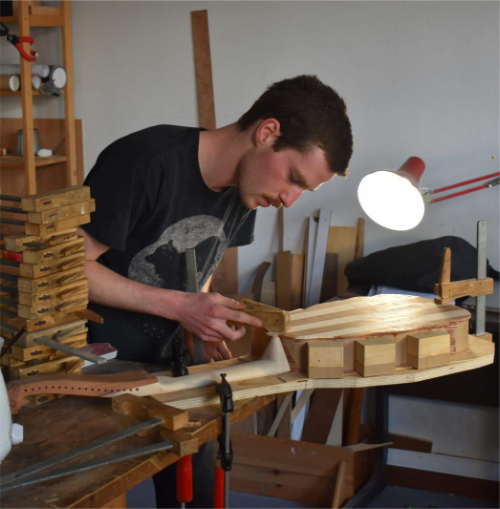
Born in Meeuwen, Belgium, Arjen Everts studied historical instrument making at the Royal Conservatory of Ghent, Belgium, specializing in lutes and plucked instruments such as the cittern and the orphareon. During his studies, he completed various internships to further specialize in his craft. Today he works in a shared workshop with Wessel Bisperink in Ghent. The Liuto forte is of particular interest to him due to its research-oriented, scientific approach to the acoustic development of the lute.
Wessel Bisperink
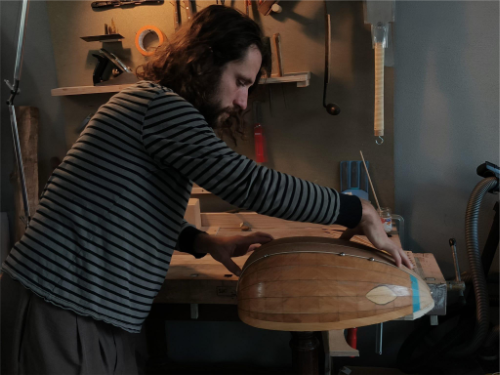
originally from Amsterdam in the Netherlands, he studied historical instrument making with a focus on lutes at the Royal Conservatory of Ghent in Belgium. He works with Arjen Everts in a shared workshop in Ghent. In view of the Liuto Forte’s commitment to a thorough investigation and creative continuation of the great European lute-making tradition, Wessel has decided to work on this future-oriented project in parallel with the construction of historical models.
Marcus Schulze
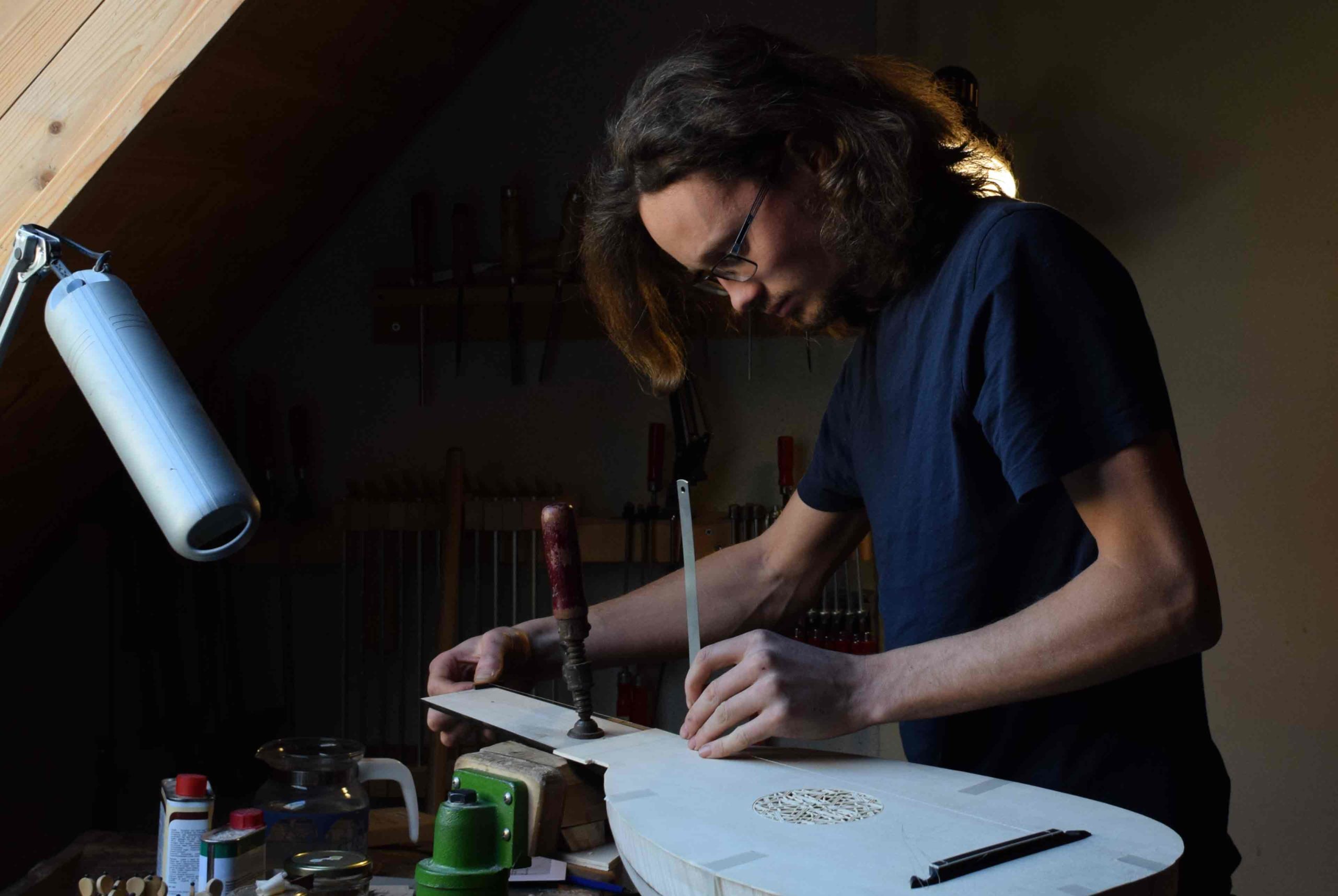 Plucked instrument maker
Plucked instrument maker
Born in Halle an der Saale, he trained as a plucked instrument maker at the Berufsfachschule Klingenthal and then studied plucked instrument making at the Fachhochschule Markneukirchen.During his studies at the technical college, he discovered his fascination for lute instruments in the courses of Prof. Günter Mark. Through internships with Wolfgang Früh in Paris, he was able to gain further experience in this field.
Marcus is a highly talented young lute maker whose instruments to date give rise to great expectations. Since 2020, he has been building Liuti forti and copies of the historical model of the “Bach lute” which can be ordered from us. He lives and works in Naundorf near Halle/Saale.”
Prof. Günter Mark
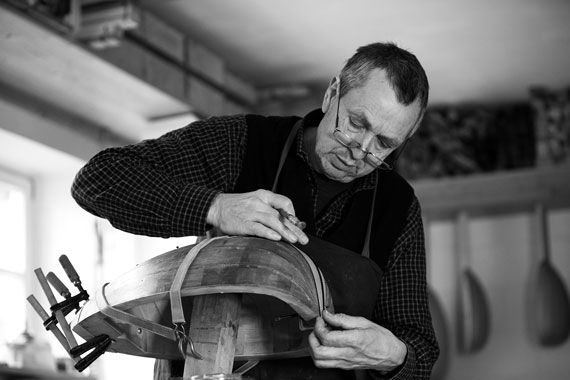
Lute and viol maker
Born in Krummenaab, studied mathematics in Erlangen and in 1982 received his doctorate in Giessen. Since 1978 he has devoted himself, at first part time, to the building, rebuilding and scientific documentation of historical musical instruments. He received basic training as a lutemaker from Robert Lundberg (Portland, USA). Since 1984, Guenter Mark has been building lutes and viols in Erlangen, Utrecht and Elsa. In 2005 he was appointed honorary professor for Historical Musical Instrument Building at the Westsaechsischen Hochschule Zwickau.
Guenter Mark enjoys an international reputation as one of the most prominent specialists in historical musical instrument building. His lutes, theorbos and viols are played world-wide by musicians in historical performance practice.
The construction of the first prototypes of the Liuto forte with its completely new sound possibilities posed a special challenge for him.
Today Günter Mark is no longer involved in the production of Liuti forti, but continues to act as a consultant for the company.
Benno Streu (1927 – 2007)
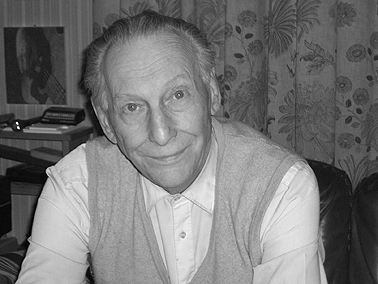
Development engineer
Born in Mannheim, he supervised the Liuto forte project as developmental engineer.
Trained in precision technology and electronics. Until his retirement in 1989 he headed the Development Laboratory of an internationally renowned manufacturer of precision and medical equipment in Freiburg/Breisgau.
Since 1959, Benno Streu concerned himself with acoustics and the restoration of musical instruments, particularly the Spanish guitar, and belonged to the world’s greatest experts on this instrument. His deep knowledge of the vibration character of soundboard of plucked instruments was crucial in the construction of the liuto forte.
In memoriam Benno Streu
For some people Benno Streu was a magician, for some a charlatan, and for others a genius. Already after a couple of months of collaboration with him I knew for sure that that the latter assessment was the correct one.
To be able to influence and control the sound of a musical instrument after its having been put together is something which customers quietly like to believe their instrument makers can do. The makers themselves prefer not to say too much about it, which allows for certain real abilities on their part, but equally for certain delusions on the part of their customers.
If it is true that the art of a great instrument maker consists not in every now and again producing a great instrument but to be able to do so regularly and without fail, then this actual capacity of affecting and controlling the sound after construction of the instrument gains immense importance.
Benno Streu was not an instrument maker but an engineer. A guitar he had once bought and whose tone had left him feeling uneasy for years led him to make investigations into the cause of this dissatisfaction. This was the beginning of an incredible journey into ever deeper understanding of the functioning of plucked instruments.
At the time of my meeting him and his wonderful wife Gisela he was at the height of his powers of discovery: like a physician, making not only infallible diagnoses but able to act at once and remove the complaint. I have often enough seen how Benno Streu, reminding one of an accomplished acupuncturist, took on finished instruments with greater or lesser blockages and faults, or whose potential had not been able to fully develop; the results amazed not only the grateful owners but also the makers, some of whom immediately became his pupils. Others remained sceptical.
For those who knew Benno Streu it is unnecessary to stress what a brilliant craftsman and sensitive restorer he was. Perhaps his most far-reaching discovery was deciphering the secret of wood pairings and string structure which had been used during the ages of the lute’s flourishing. This is now applied in the making of every Liuto forte. Without the advice and practical assistance of Benno Streu the vision of a new lute would have remained no more than a beautiful dream. For me, his name shines brightly among the finest of lute and guitar builders.
André Burguete
Michael Haaser (passed away on 14 September 2025)
Our former lute maker Michael Haaser passed away on 14 September 2025 in Dresden.
He trained as a guitar maker at the Musical Instrument Making School in Markneukirchen and then received additional training in lute making from Professor Günter Mark in Elsa.
Michael made a large number of instruments for our company until early 2024. These can now be found in almost all European countries as well as in Japan, Australia, New Zealand, Canada and the United States.
Michael’s work deserves the highest recognition. His name will forever be linked to the history of Liuto forte.


